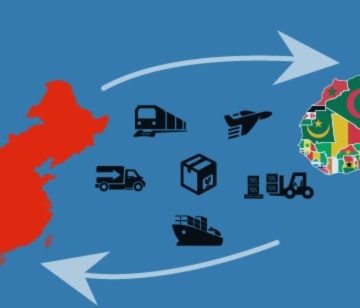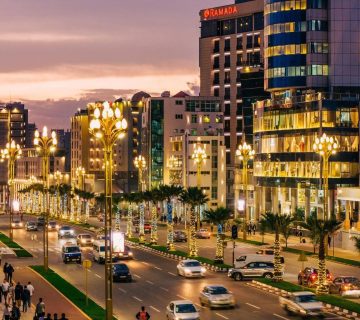As global attention is focused on the coups and metastasizing Islamist insurgencies in the Sahel, democracy is rapidly unraveling in East Africa. Governments have detained the main opposition leaders in Tanzania, Uganda and South Sudan ahead of general elections. Rwanda and Democratic Republic of Congo (DRC) similarly barred or jailed the opposition ahead of the 2024 polls. But it is not just opposition leaders being targeted, dissident civilians, whistleblowers and civil society activists are increasingly being targeted with arbitrary arrests and treason charges, abductions, murder and enforced disappearances. Human rights and the civic space are thus dramatically shrinking across the region.
In Tanzania, Tundu Lissu, the leader of CHADEMA, the main opposition party, is detained since April this year, for leading the “no reforms no elections” campaign ahead of general elections on the 29th this month. In Uganda, opposition leader Kizza Besigye, abducted in November 2024, remains in detention, with general elections three months away. And in South Sudan, where elections are scheduled for December 2026, the opposition leader, Riek Machar, is in detention since March this year, as are dozens of his supporters. Machar’s detention not only undermines the credibility of the upcoming polls; it also threatens the fragile post-conflict peace in South Sudan. Meanwhile, in the Democratic Republic of Congo, a military court on September 30, 2025 sentenced former President and opposition leader Joseph Kabila to death for treason.
All the detainees are accused of treason and face the death penalty, making competitive politics in East Africa risky, fatal or practically impossible. Several governments in the region are rolling back democratic freedoms to dominate the political space, ahead of elections. Courts of law, security agencies and national media have been weaponized and repurposed into handmaids of the long-ruling political parties, eroding institutions as well as checks and balances. As such, the attempts by East African governments to tick the boxes by holding elections, should not divert the international community away from fundamental flaws which undermine democracy in the region.
Strongmen and Dominant Parties
The rising wave of government crackdown on opposition leaders and parties, as well as dissidence, undercuts the normal mechanics of democracy — pluralism, competition, legitimacy and accountability. By resorting to the suppression of the opposition, the ruling parties have entrenched fear, coercion and the strong-men rule in Tanzania, Uganda, South Sudan, the Democratic Republic of Congo (DRC) and Rwanda.
Treason laws and national-security pretexts are now the playbooks of the incumbent governments, in prosecuting, neutralizing political rivals, and recasting dissent as subversion. The abduction, arbitrary and incommunicado detentions as well as enforced disappearance of dissidents is undermining civil liberties, particularly free association, assembly, and speech, ensuring the exclusivity of the political space to ruling parties. This is truer when opposition parties and candidates are arbitrarily disqualified, rallies banned or disrupted, and the media muzzled.
For example, Tundu Lissu’s CHADEMA party has been banned from certain elections in Tanzania, leaving the ruling Chama Cha Mapinduzi (CCM) a dominant player in the upcoming elections. Lissu survived assassination attempt after being shot 17 times in 2017 ahead of the 2020 elections. CCM is one of Africa’s longest ruling parties (1977 – present) and has been systematically edging out opposition parties, securing 93 percent of the parliamentary seats and 84 percent of the president vote in the controversial 2020 general elections. The political reforms felt in 2021 after the death of President John Magufuli were short-lived, with President Samia Suluhu increasingly resorting to repression and freezing debate on constitutional review. CHADEMA’s former leader, Freeman Mbowe was detained for over seven months between 2021 – 2022 for demanding constitutional reforms shortly after President Suluhu assumed office in 2021.
In Uganda, President Yoweri Museveni and his National Resistance Movement (NRM) have been in power for 40 years now. NRM controls 61 percent of Uganda’s parliament, and maintains control over the military, through politico-military fusion which blurs the lines between the ruling party, the presidency, and the armed forces. Opposition parties National Unity Party (NUP) led by Robert Kyagulanyi and the Forum for Democratic Change (FDC) led by Kizza Besigye control 11 percent and 6 percent of parliamentary seats respectively. With Kizza Besigye’s in detention and Robert Kyagulanyi’s campaigns harassed, NRM looks to exert dominance over the political space and ensure President Museveni’s seventh term. NRM changed Uganda’s constitution twice, to remove age and term limits, clearing the way for Museveni’s subsequent terms and extension of NRM’s four decades in power.
In Rwanda, President Paul Kagame is now in his fourth term, having ruled since 2000; his Rwanda Patriotic Front (RPF) captured power in 1994, making him de facto leader of Rwanda until assumption to presidency in 2000. Rwanda’s constitution was changed in 2015 to allow Kagame’s extension of tenure; he secured 99 percent of the vote in the just concluded 2024 elections. RPF controls nearly 70 percent of parliament but its parliamentary power is further boosted by opposition parties which are allied with RPF. In the 2018 elections for example, the RPF won 40 of the lower house’s 53 elected seats. Three other parties allied with the RPF—the Social Democratic Party, the Liberal Party, and the Social Party—won 5, 4, and 2 seats respectively, increasing RPF’s control to 51 out of 53 seats.
The Democratic Back-slide
As ruling parties continue to dominate the political space, by jailing opponents and barring them from important political processes such as elections, as is the case in Tanzania, Uganda and South Sudan, democracy sharply back-slides in the region fraught with fragile states and conflict. The trend risks further instability in the region as a result of growing legitimacy deficits for incumbent governments and persistent political struggle which sometimes turns militaristic as in South Sudan, DRC and by extension Sudan. Uganda and Rwanda have active insurgency groups operating in ungoverned territories in DRC and Central African Republic (CAR), as do Ethiopia and Somalia, in the wider region.
The current wave of crackdown on the opposition in the region, guarantees regime consolidation in the short term, but bears adverse long term effects accountability mechanisms, institutional checks and balances, credibility of political processes especially elections, and ultimately, government legitimacy. The current trend entrenches one-party or one‐leader rule, which in turn raises governance risks including corruption, unaccountable security forces and policy rigidity. In fragile states like South Sudan and the DRC, such political dysfunction threatens to reignite conflict. In South Sudan, the recent crackdown comes as elections are overdue, the army is still fractured, and the peace deal fraught with violations. Riek Machar is himself a key signatory to the 2018 peace agreement following two devastating civil wars (2013-15 and 2016-18); his detention only increases tensions and makes stability uncertain. In the DRC, the unrest in the eastern region might imply that internal repression will feed the broader decades-long instability.
Conclusion
The jailing of opposition leaders such as Tundu Lissu, Kizza Besigye, and Riek Machar as well as the death-sentencing of Joseph Kabila, alongside abduction and enforced disappearance of dissidents mark a worrying retreat of democracy in East Africa. These are not isolated legal cases but part of a broader pattern of regime consolidation but dominant ruling parties. In states already shaped by conflict and fragility such as South Sudan and DRC, this trend amplifies risk, not only of democratic decline, but of instability, violence and regional spill-over, at the time when the region continues to grapple with instability caused by the ongoing armed conflict in Sudan. While the region’s future will depend on whether civil society, courts, and other regional states will push back against the authoritarian creep, the international community should adopt measures to avert the drift towards authoritarianism in East Africa, beginning with a sharper focus on the upcoming elections in the region.
Photo Credits: Getty Images



